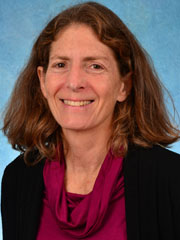Dr. Nancy Bagatell, Associate Professor, has received a Junior Faculty Development Award worth $7,500 to fund research. The pilot project, called “Families with Adolescent-Aged Children and the Co-construction and Re-negotiation of Occupations and Routines: Investigating Methods to Capture Transactions of Families,” seeks to study the routines and occupations of families with adolescents to discover how and why these routines change over time.

“My long-term goal is to develop a family-focused and occupation-based intervention for families with adolescents with disabilities, specifically autism spectrum disorders,” Dr. Bagatell said. “Having an understanding of the daily lives of families with typically developing adolescent-aged children will inform the development of the intervention and strengthen the field’s understanding of the phenomenon of family occupations and routines.”
Family routines may include bedtime and morning routines in addition to activities that revolve around mealtimes. Research has shown that these routines are important contributors to the health and well-being of individual family members, supporting academic success, social competence, and mental health. As children grow, family routines change and evolve, especially during adolescence because this developmental period is marked by a search for independence and autonomy on the part of adolescents.
Dr. Bagatell seeks to further the understanding of family occupations by specifically observing their transactional nature; that is, how factors both inside and outside of the family affect routines and how these routines affect family members. Her aim is to further previous research by gaining a deeper understanding of how, and especially why, changes in routines occur.
The project will include four families from diverse backgrounds, each with at least one adolescent child, over a six-month period. While most other research has relied on interviews with mothers to gain information about family routines, Dr. Bagatell thinks this limits the scope of understanding, saying that “while mothers have been shown to be the main orchestrators of family life, the privileging of the mother’s voice denies the agency of children and other family members.” Dr. Bagatell seeks to extend the depth of her research by conducting interviews of the family as a whole, facilitating discussion of routines, participant observation, and video recording daily activities.
Her research methods also include the use of participatory photo interviewing and occupational mapping. Participatory photo interviewing involves giving family members disposable cameras and asking them to take photos of family routines and activities. Interviewers will later use these photos to facilitate discussions between family members. Dr. Bagatell is also developing a method of data collection involving occupational mapping, which she hopes will reveal “a deeper understanding of the home and community’s physical geography and where families engage in occupation.”
Story by Meredith S. Bennett
